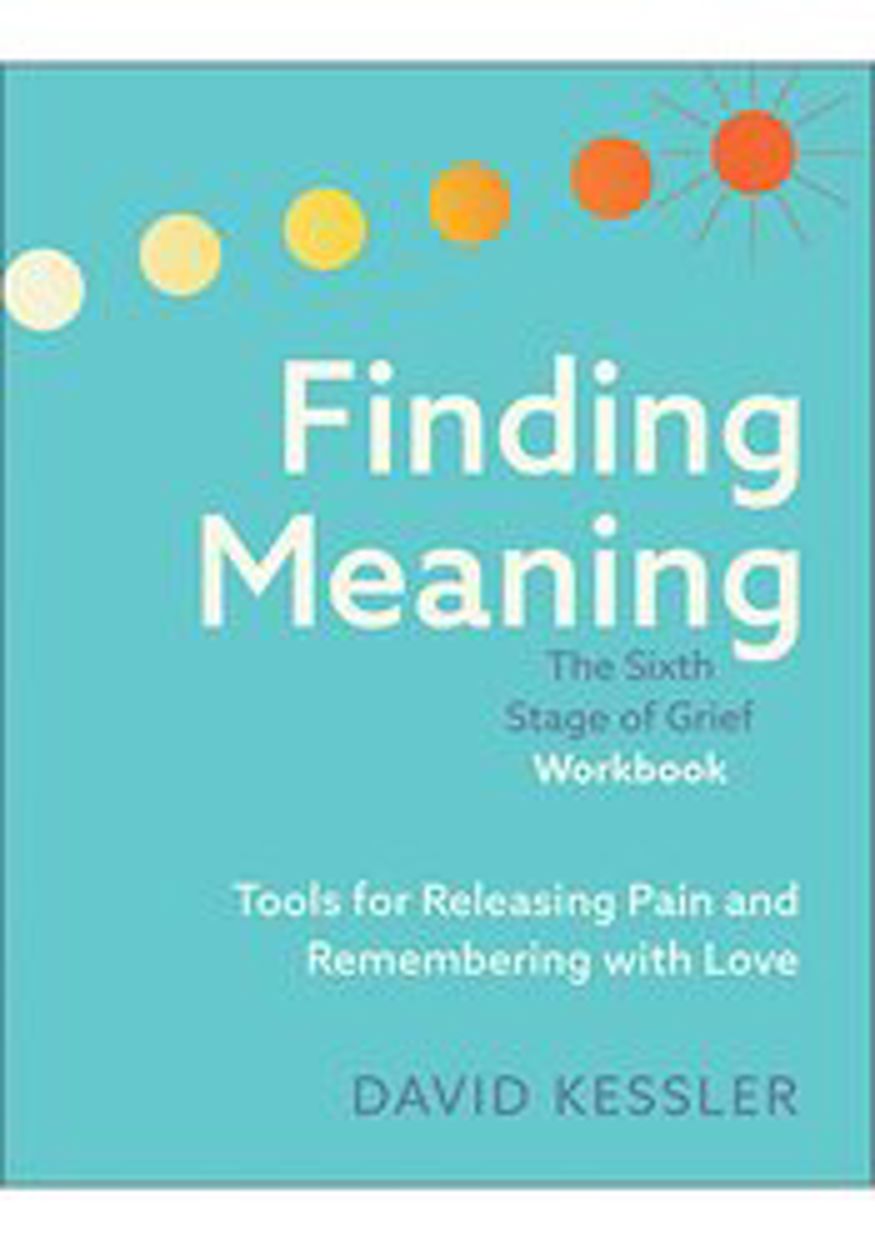How to Help Clients Reclaim Power After Loss

Grief is an intimate journey that deeply changes us. As clinicians, we witness firsthand how grief can disrupt a person’s sense of self and stability. After a loss, the world can seem to collapse. Grieving clients often question many core beliefs. They often begin to question why this must happen, and they also question their purpose, doubt their decisions, and struggle to find inner strength. As clinicians, it’s our job to guide our clients to reclaim their power after experiencing a loss.
The early stages of grief always feel overwhelming. Feelings and emotions fluctuate wildly, making clients feel like they’ve completely lost control. They wrestle with the uncertainty of living life without their loved one, and often wonder what they could have done differently to prevent this. While clients feel powerless, it’s in these very moments of vulnerability that we, as therapists, can help them begin to see the faint outlines of their own power emerging. By identifying where their power is and encouraging them to identify what feelings are within their control, we can help them reclaim their power after loss.
A useful way to help conceptualize someone’s power when they feel powerless is by conceptualizing the “three lanes of grief.” This refers to their lane, others’ lane, and the universe’s lane. The clients' power lies in their own lane. They decide how they respond, how they cope, and the decisions they make for themselves. Their power is not dependent on the actions or opinions of others, nor is it bound by external events beyond their control. Helping clients focus on their own lane enables them to focus on what they truly control: processing their emotions, honoring their unique grief journey, and rebuilding their lives with intention and purpose.
Helping clients validate their feelings, while also encouraging them to consider new perspectives is one of the key elements that help clients find their power.
Gently guide them to answer difficult questions such as:
Those who are experiencing a loss can not only feel disempowered by themselves, but can often feel disempowered by circumstances surrounding their loss. For example, close relatives attempt to help by making funeral arrangements but do so with little to no input from your client. While the family member believes that they are helping, this can make the griever feel that they have less control. These feelings can often spiral, leaving clients feeling excluded and helpless, unable to honor their loved one in the way they would have chosen.
These seemingly helpless situations are opportunities to encourage clients to consider how they can still express their love and respect for their loved one. What rituals or memorials can they create now that will encourage feeling at peace? In what ways can they still honor the memory of their loved one? Bringing these questions to mind can help clients shift their thinking from a place of powerlessness to active participation and healing.
While we cannot ignore feelings of grief, our duty as clinicians is to support clients in finding ways to transform their grief into their own superpower. We guide them in exploring how they want to live their lives moving forward, not as a rejection of their grief but as an acknowledgment that they are still here and still capable of creating meaning.
Empowering grieving clients to reclaim their power after grief is not about rushing them through their emotions or pushing them to find a silver lining. Instead, it’s focused on guiding them to recognize the strength that remains even in their weakest moments. As therapists, we have the privilege of walking alongside our clients as they navigate this complex terrain, offering support, inspiration, and gentle reminders of their own resilience.
Help your clients further their healing journey with these printable worksheets straight from David Kessler's new workbook Finding Meaning Workbook. This workbook is designed to guide individuals through their pain with patience and compassion, and the exercises you'll find in it are designed to help your grieving clients find meaning and provide new ways to endure and grow from loss.
The early stages of grief always feel overwhelming. Feelings and emotions fluctuate wildly, making clients feel like they’ve completely lost control. They wrestle with the uncertainty of living life without their loved one, and often wonder what they could have done differently to prevent this. While clients feel powerless, it’s in these very moments of vulnerability that we, as therapists, can help them begin to see the faint outlines of their own power emerging. By identifying where their power is and encouraging them to identify what feelings are within their control, we can help them reclaim their power after loss.
A useful way to help conceptualize someone’s power when they feel powerless is by conceptualizing the “three lanes of grief.” This refers to their lane, others’ lane, and the universe’s lane. The clients' power lies in their own lane. They decide how they respond, how they cope, and the decisions they make for themselves. Their power is not dependent on the actions or opinions of others, nor is it bound by external events beyond their control. Helping clients focus on their own lane enables them to focus on what they truly control: processing their emotions, honoring their unique grief journey, and rebuilding their lives with intention and purpose.
Helping clients validate their feelings, while also encouraging them to consider new perspectives is one of the key elements that help clients find their power.
Gently guide them to answer difficult questions such as:
- “Is it true that I will never feel joy again?”
- “Am I really helpless, or are there small actions I can take today to regain a sense of agency?”
- “Is it possible that my sadness could coexist with moments of peace?”
- “Am I unable to move forward, or am I simply moving at my own pace?”
- “Am I betraying my loved one by finding moments of happiness, or am I honoring their memory by continuing to live?”
- “Is it realistic to expect myself to be the same as I was before, or can I honor who I am becoming?”
Those who are experiencing a loss can not only feel disempowered by themselves, but can often feel disempowered by circumstances surrounding their loss. For example, close relatives attempt to help by making funeral arrangements but do so with little to no input from your client. While the family member believes that they are helping, this can make the griever feel that they have less control. These feelings can often spiral, leaving clients feeling excluded and helpless, unable to honor their loved one in the way they would have chosen.
These seemingly helpless situations are opportunities to encourage clients to consider how they can still express their love and respect for their loved one. What rituals or memorials can they create now that will encourage feeling at peace? In what ways can they still honor the memory of their loved one? Bringing these questions to mind can help clients shift their thinking from a place of powerlessness to active participation and healing.
While we cannot ignore feelings of grief, our duty as clinicians is to support clients in finding ways to transform their grief into their own superpower. We guide them in exploring how they want to live their lives moving forward, not as a rejection of their grief but as an acknowledgment that they are still here and still capable of creating meaning.
Empowering grieving clients to reclaim their power after grief is not about rushing them through their emotions or pushing them to find a silver lining. Instead, it’s focused on guiding them to recognize the strength that remains even in their weakest moments. As therapists, we have the privilege of walking alongside our clients as they navigate this complex terrain, offering support, inspiration, and gentle reminders of their own resilience.
Help your clients further their healing journey with these printable worksheets straight from David Kessler's new workbook Finding Meaning Workbook. This workbook is designed to guide individuals through their pain with patience and compassion, and the exercises you'll find in it are designed to help your grieving clients find meaning and provide new ways to endure and grow from loss.
Finding Meaning:
The Sixth Sense of Grief Workbook: Tools for Releasing Pain and Remembering with Love
The Sixth Sense of Grief Workbook: Tools for Releasing Pain and Remembering with Love

International grief expert and noted author David Kessler has spent decades working with thousands of people experiencing the depths of their grief. He knows the pain deeply, personally. And he also knows the path to begin to find hope, and healing, again. And it is in that love where you can find meaning.
Written with warmth, sensitivity, and unique insight, you’ll feel like you are sitting with David, having a conversation along your path to healing. This workbook is filled with self-reflective exercises, journaling opportunities and warmhearted guidance for your clients to navigate their grief journey.
Written with warmth, sensitivity, and unique insight, you’ll feel like you are sitting with David, having a conversation along your path to healing. This workbook is filled with self-reflective exercises, journaling opportunities and warmhearted guidance for your clients to navigate their grief journey.
David Kessler on Grief Healing for Mind, Body and Spirit

Join renowned grief expert David Kessler and learn to heal grief with mind-body techniques that combine breathwork, movement, sound, yoga, and more. Gain skills that will help your clients to find acceptance, resolve guilt, overcome triggers, shame, and more. PLUS, get bonus content on addiction, preserving memories, and more!






